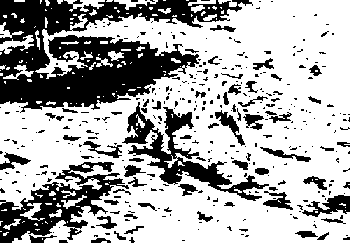If a person is unfortunate enough to have BPD then it must be great luck to have as psychologist someone who was a student of Linehan who created DBT therapy to treat it.
DBT requires mastering mindful meditation. As a baby-boomer I should be comfortable with seeking help in eastern ideas, but I'm having some difficulty with that.
As Wiki discusses the core of DBT..."Mindfulness is one of the core concepts behind all elements of DBT. Mindfulness is the capacity to pay attention, nonjudgmentally, to the present moment. Mindfulness is all about living in the moment, experiencing one's emotions and senses fully, yet with perspective. It is considered a foundation for the other skills taught in DBT, because it helps individuals accept and tolerate the powerful emotions they may feel when challenging their habits or exposing themselves to upsetting situations. The concept of mindfulness and the meditative exercises used to teach it are derived from traditional Buddhist practice, though the version taught in DBT does not involve any religious or metaphysical concepts."
My zoologically trained brain has no trouble percieving the broad scope of my environment. I walk down suburban streets and often notice 15-20 species of birds twittering around me.
But, registering a perception, particularly about personal interactions, I often cannot let go of the way I've categorized my experience. I can't see things another way, and without opposing point of view there can be no dielectic, and so, it seems, no dielectical behavior therapy.
Hence this...

Persistent Perceptions In Emptiness
(why brains deplore mindfulness?)
Above my hollow musings
you have already seen
this page holds some dark ink spots
that bait unsuspecting brains.
If we were in the moment, mindful,
freed from judgmental thoughts
could we decode, and then ignore,
the phantoms that they aren’t?
It’s normal to feel crazy
seeing something that’s unseen:
a spotted dog, leaves on a lawn
that’s white instead of green.
Once formed, the image dominates.
choking further thoughts
it strangles contemplation
with long, yet, unscribed arcs.
Perception fronts for knowing
a brain would rather report errors
than to be forced to sit in silence
having glimpsed what could be there.